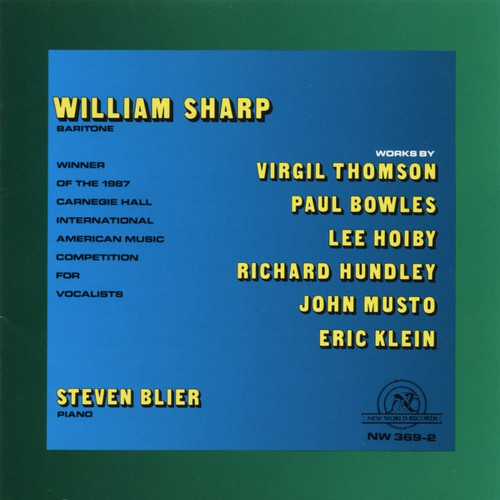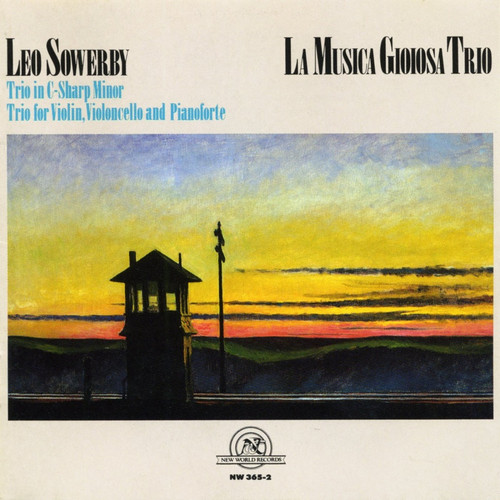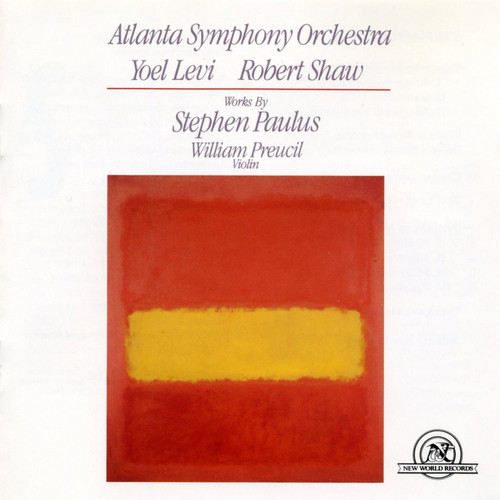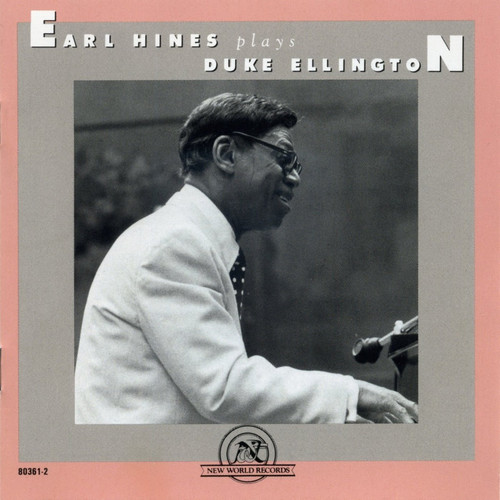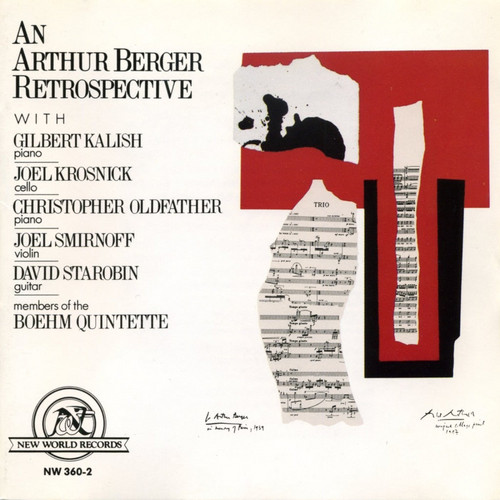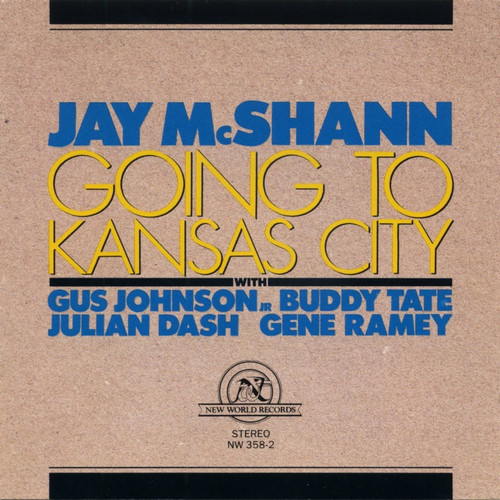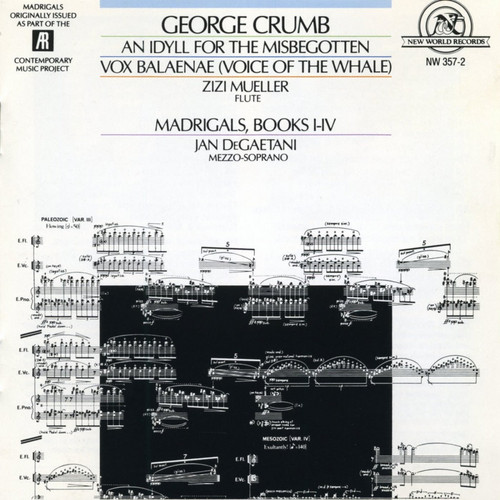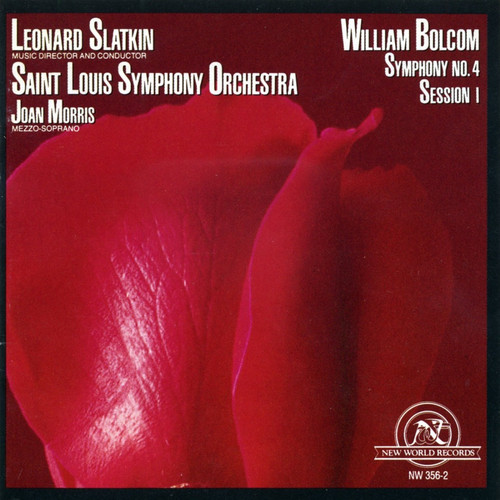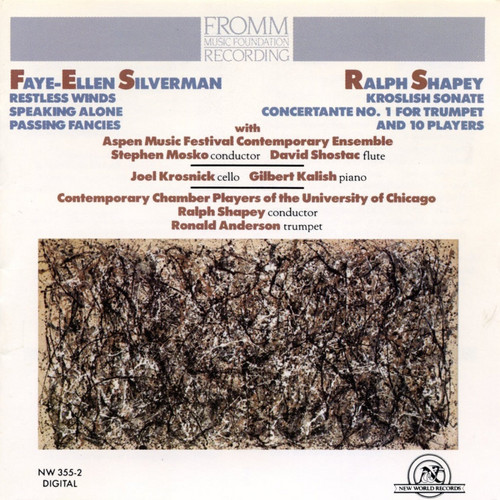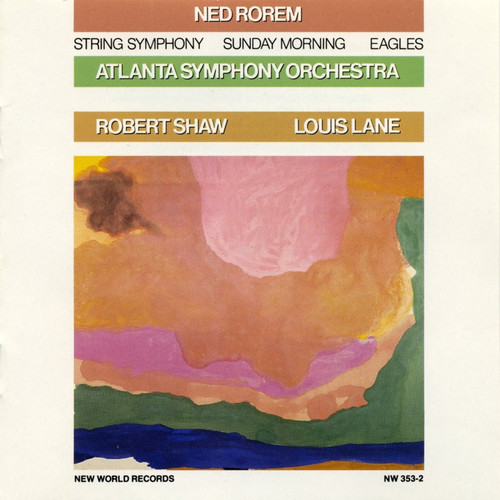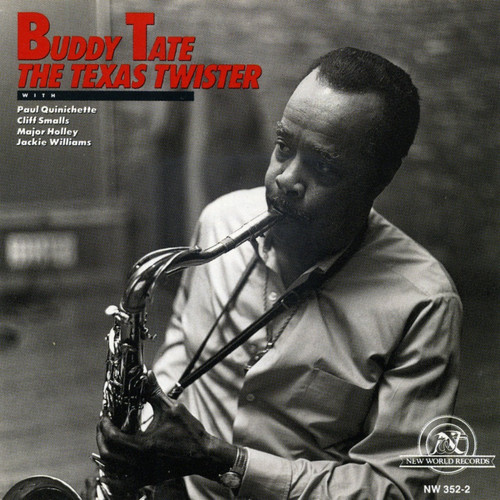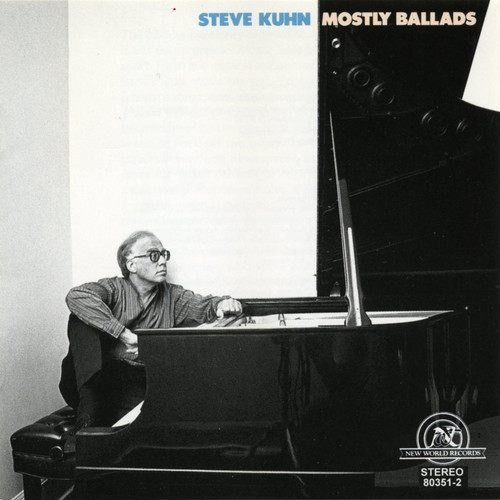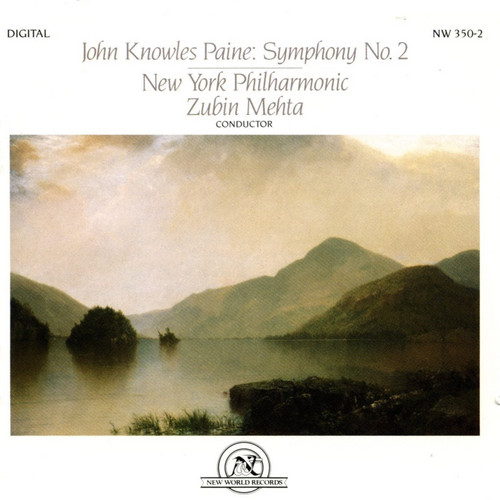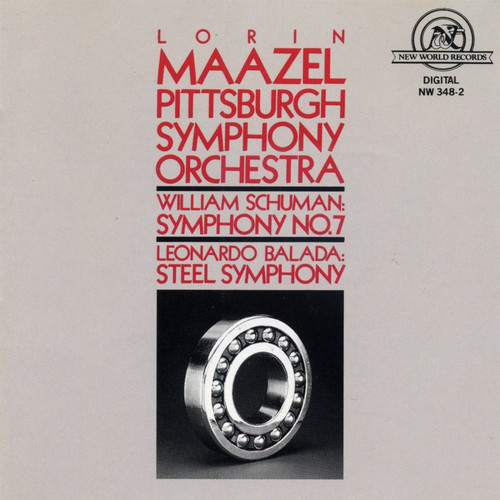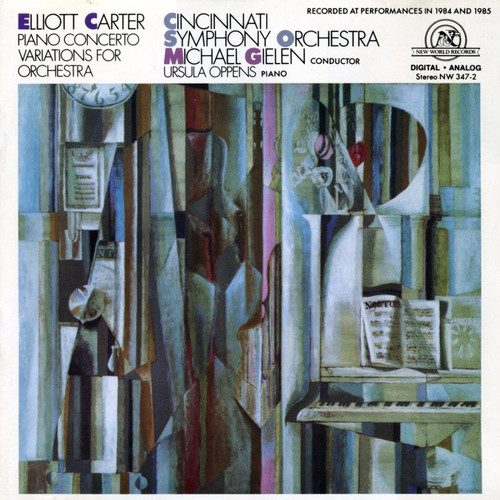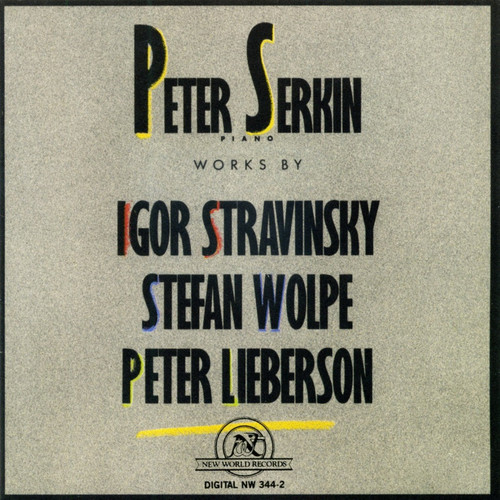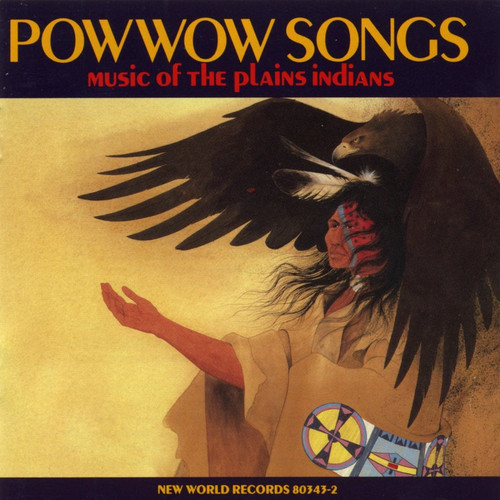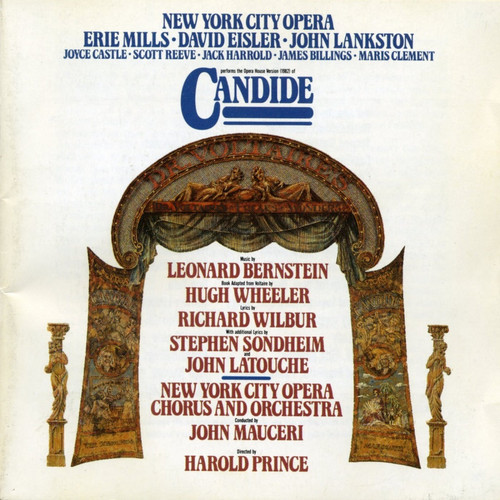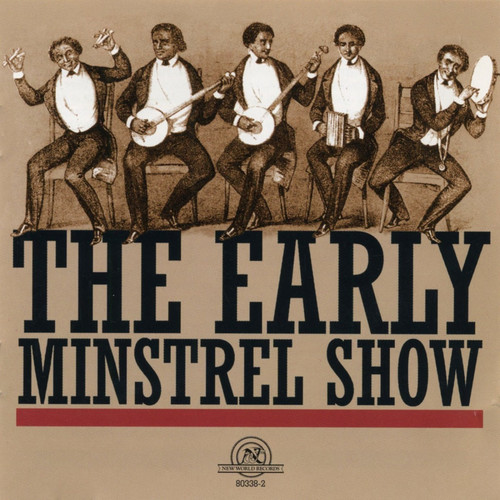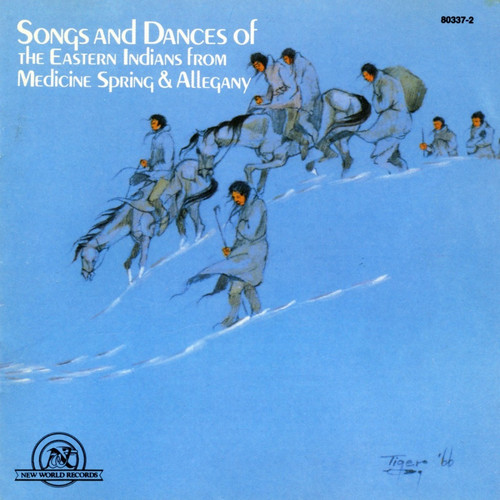★New World Records
William Sharp, Steven Blier, Virgil Thomson, Paul Bowles, Lee Hoiby, Richard Hundley, John Musto, Eric Klein (5)
Works by Thomson, Bowles, Hoiby, Hundley, Musto and KleinAmerican art song has traveled a long way from the parlors of 19th-century America. The turn of this century brought its adolescent rebellion in the iconoclastic hands of Charles Ives, followed by an impressive, if somewhat retrospective, era heralded by such composers as Bacon, Chanler, Nordoff, and early Thomson. But by mid-century, what should have been a time of full adulthood was instead a curiously fallow period (which Philip L. Miller attributes to composers abandoning melody and Ned Rore…
Trio In C-Sharp Minor / Trio For Violin, Violoncello And Pianoforte
Leo Sowerby (1895-1968) lived for most of his career in Chicago where he spent more than 40 years on the faculty of the American Conservatory and nearly as long as organist-choirmaster of St. James Cathedral. His music can be described as "eclectic" in the best sense of the word.
German theory, French composition, English and American folk music, liturgical music and jazz (he toured with the Paul Whiteman Orchestra) all figure among the influences on his vast body of work. He produced more than…
Works By Stephen Paulus
Stephen Paulus's musical style is melodic and highly rhythmic. He tends to work in traditional forms, and his music is accessible to listeners possessing a wide range of tastes. Those seeking well-crafted contemporary music with a decidedly neo-Romantic bent will find these three orchestral works very much to their liking.
As its title implies, Concertante is chiefly concerned with contrasts between solo instruments, small groups of players, and the full orchestra. Although, as the composer note…
Earl Hines Plays Duke Ellington
When time pulled the rug from under Earl Hines in 1983, he was still enjoying a comeback that had lasted almost twenty years. That comeback was one of the most important events in recent jazz history and the music included here was recorded when his return to action was in high gear.
The classic quality that Hines maintained throughout his career, and that dominates these interpretations, was a persistent exuberance, a spirit of engagement. Hines was not incapable of meditative melancholy or the…
Arthur Berger, Gilbert Kalish, Joel Krosnick, Christopher Oldfather, Joel Smirnoff, David Starobin, Members Of The Boehm Quintette
An Arthur Berger RetrospectiveFor over fifty years Arthur Berger's output consisted of sturdily crafted pieces that reflected the mixed lineage of Stravinsky, Schoenberg, and Copland. Born in 1912 and raised in the Bronx, he first studied at City College and New York University, later at the Longy School of Music and at Harvard. Berger completed his formal education with Nadia Boulanger in Paris. From 1939 to 1943 he taught at Mills College and Brooklyn College, then began writing music criticism for the New York Sun and, pr…
Going To Kansas City
Jay McShann secured a lasting place in jazz history on April 30, 1941, when he became the first bandleader to usher Charlie Parker into a studio for a commercial recording session. For years, that was how McShann was remembered, if at all—as an early benefactor of the most influential figure in modern jazz. Shamefully, it took the jazz literati three decades to recognize Bird's old boss as a dynamic force himself.
McShann's advocacy of Parker was hardly his only distinction as a bandleader. A ri…
An Idyll For The Misbegotten / Vox Balaenae / Madrigals, Books I-IV
George Crumb's (b 1929) music often juxtaposes contrasting musical styles. The references range from music of the Western art-music tradition, to hymns and folk music, to non-Western musics. Many of Crumb's works include programmatic, symbolic, mystical and theatrical elements, which are often reflected in beautiful and meticulously notated scores.
Crumb's expressive content is heard to good effect in the works on this recording, which reflect several obsessions: the four books of Madrigals (th…
Symphony No. 4 / Session I
William Bolcom was born on May 26, 1938, in Seattle, and trained at the University of Washington and Stanford University, as well as with Darius Milhaud. He has written four symphonies, concertos for piano and for violin, chamber and solo instrumental music, and the mammoth setting of the forty-six Songs of Innocence and of Experience by William Blake, nearly thirty years in the composing.
In the early 1960s Bolcom worked with improvisational theater groups. Between 1965 and 1967 he wrote four …
Works By Faye-Ellen Silverman And Ralph Shapey
Faye-Ellen Silverman has been prolific throughout her career. She has written a wide variety of orchestral and chamber-music works, which have been performed by major ensembles throughout America and in Europe and Asia. A graduate of Barnard College, Harvard University, and Columbia University, she studied composition with, among others, Otto Luening, Vladimir Ussachevsky, Leon Kirchner, and Jack Beeson. Silverman's Passing Fancies (1985), whose patron, Paul Fromm, is remembered in the initials …
String Symphony / Sunday Morning / Eagles
Perhaps best known for his vast catalogue of vocal music-operas, song cycles, and choral works-Ned Rorem (b. 1923) also has composed three symphonies, four piano concertos, and an impressive array of other orchestral and chamber works. He received the 1976 Pulitzer Prize for the orchestral suite Air Music.
This collection features three of his orchestral works, String Symphony, Sunday Morning, and Eagles. String Symphony dates from 1985 and was completed in the space of just eight weeks. Mr. Ro…
The Texas Twister
The Texas Twister is a relaxed, gently probing session; its several highlights begin with the title selection, a thirty-two-bar riff confection with a characteristically willful opening solo by Buddy Tate. His best playing on the date is heard on "Talk of the Town," a memorable example of his ability to invest a ballad with emotional generosity, melodic invention, and playfully rhythmic finesse, and on "Topsy," in which he follows the piano solo with a plaintive, wailing, yet impeccably shaped s…
Mostly Ballads
The fullness and clarity of the six solos and six duets that comprise Mostly Ballads set them apart from the typical encounter of post-Parker jazz musicians with "the tradition." Standard songs, once the improviser's training ground, fell out of favor in the sixties as jazz became freer on the one hand and more tolerant of rock on the other; far too many players viewed pop tunes merely as opportunities for broad comedy or rote displays of musicianship. But Steve Kuhn, a post-Parker improviser wi…
Symphony No. 2
The premieres of John Knowles Paine's two symphonies-the First in 1876, the Second in 1880-may be said to mark the effective beginning of the American symphonic tradition. American composer George W. Chadwick, who had been a young man in Boston in the 1870s, recalled that the Paine symphonies were "a stimulus and an inspiration to more than one ambitious musician of that time." Paine (1839-1906) studied with a German immigrant musician in Portland, Maine, then went to Berlin for several years. U…
Symphony No. 7/Balada: Steel Symphony
William Schuman was born in 1910 in New York. His earliest musical interests were at first confined to current popular music. In 1930, after hearing his first concert of symphonic music-Toscanini and the New York Philharmonic in a program of music by Wagner, Kodaly, and Robert Schumann-he redirected his life. Schuman later graduated from Columbia University and studied privately with Roy Harris. Symphony No. 7 premiered on October 21, 1960, under the direction of Charles Munch, who succeeded Kou…
Piano Concerto / Variations For Orchestra
While a student at the Horace Mann School, Elliott Carter came to know Charles Ives. Carter continued his education at Harvard and then studied with Nadia Boulanger in Paris. Ives and Boulanger were formative influences: Carter's music draws on American experimentalism (Ives, Cowell, Crawford, Nancarrow, Varèse) and European modernism (Debussy, Stravinsky, the Viennese). Ever since he reached his stylistic maturity with the String Quartet No. 1 of 1951, Carter has continued to pursue an original…
Piano Works
Pianist Peter Serkin is renowned for his performances and recordings of contemporary music. He has worked closely with composers such as Olivier Messiaen, Toru Takemitsu, Luciano Berio, and Peter Lieberson; he also was a founding member of the chamber group Tashi.
Igor Stravinsky's 1925 Serenade en La was originally composed to suit phonograph players, with each movement designed to fit the three-minute capacity of each of four ten-inch 78rpm sides. The title, Stravinsky explained, did not mea…
Powwow Songs — Music Of The Plains Indians
Produced and annotated by Charlotte Heth, a member of the Cherokee nation of Oklahoma and a noted ethnomusicologist.
This disc offers ceremonial and social music of Indians from the Great Plains. Although the styles of singing and drumming vary greatly in different regions and among different tribes, the forms of music are similar, enabling musicians from many tribes to perform together. Most of the music here is intertribal singing of what are now the Southern Plains Indians, primarily from Ok…
Candide
Leonard Bernstein's musical adaptation of Candide started life in 1956 as a musical comedy, became an operetta, was heard several times in concert form, and if not home to roost once and for all in this recorded version, is certainly being cultivated in the place many felt it belonged from the very beginning-the opera house. By the time Candide opened at the Martin Beck Theatre in New York on December 1, 1956, this question was clarified somewhat by changing the billing from "a musical" to "a co…
The Early Minstrel Show
The racist stereotyping of blacks in the minstrel shows that enjoyed such enormous popularity during the latter half of the nineteenth century might be considered reason enough not to resurrect this material, but anything with so much cultural impact deserves serious study. We need to listen to this material in its historical perspective and understand that the study of it is not a validation of its racist sentiments. This recording attempts to recreate the music of a typical minstrel show of th…
Songs And Dances Of The Eastern Indians From Medicine Spring & Allegany (Cherokee, Seneca)
Produced and annotated by Charlotte Heth, a member of the Cherokee nation of Oklahoma and a noted ethnomusicologist.
This disc offers ritual, ceremonial, and social music of Indians of the eastern United States. It demonstrates remarkable similarities of style in the music of Indians from two distinct regions.
Tracks 1-3 comprise songs and dances from the Cherokee and Creek Indians and probably the now-extinct Natchez as well, who were forcibly removed from their homelands in the southeastern …
